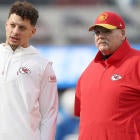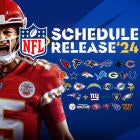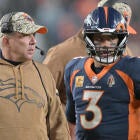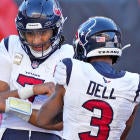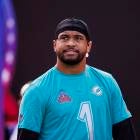For all of the credit Lions offensive coordinator Jim Bob Cooter has gotten due to his work with quarterback Matthew Stafford, he's failed to awaken the running game.
In 2016, the Lions rushed for 1,310 yards -- 81.9 yards per game -- which ranked 30th in the NFL. They tied for the least amount of rushing plays (350), averaged the sixth-fewest yards per attempt (3.7), and tied for the fifth-fewest rushing touchdowns (nine). Football Outsiders ranked their rushing game 25th in the league. So no, the Lions didn't pound the ball last season, which ended with an opening round playoff loss after a 9-7 regular season.
As the Lions enter the 2017 season with playoff aspirations, their running game remains their biggest question mark. So, let's attempt to answer a few of the questions that surround that running game.
(The Lions are back at training camp! Don't MISS anything as they prepare to try and return to the playoffs -- take five seconds to Sign up for our Free Lions newsletter now!)
Will they find more success on the ground this year? How does a healthy Ameer Abdullah impact their plans? And most importantly, do they even need to run the ball more?
Will they be better?
A year ago, the Lions' offensive line ranked 31st in run blocking by Football Outsiders. To help remedy the problem -- along with fixing their pass protection issues -- the Lions went out and signed two starting offensive lineman in right guard T.J. Lang and right tackle Ricky Wagner. They also signed Darren Fells, a tight end who specializes in blocking, and drafted another tight end in Michael Roberts.
Lang and Wagner are both solid linemen, with Lang ranking as PFF's eighth-highest graded guard and Wagner ranking as PFF's 18th-highest grade tackle last year, but both specialize in pass blocking. Wagner was PFF's ninth-best pass blocker among all tackles and Lang was PFF's second-best pass blocker among all guards. So, Stafford should be stoked about their arrival. But Wagner and Lang received below-average run blocking grades, with Wagner ranking 40th among all tackles and Lang ranking 26th among all guards. So, the Lions' running backs shouldn't necessarily be overly excited about their arrival.
Fells, though, should help the running game, as he received a positive run-blocking grade from PFF, ranking 15th among tight ends. For the sake of comparison, the Lions' starting tight end, Eric Ebron, was graded as the 62nd-best run blocker among tight ends. Only 62 tight ends were eligible, which means he ranked dead last. So yeah, Fells should help.
But Fells won't play over Ebron. He'll primarily be on the field when the team uses multiple tight ends. That might be a problem, though. According to PFF, the Lions used 12 personnel (one running back, two tight ends, two receivers) just 10 percent of the time when the league average was 17 percent. Instead of going big, the Lions preferred to use 11 personnel (one running back, one tight end, three receivers) more frequently -- 74 percent of the time to be exact when the league average was 59 percent.
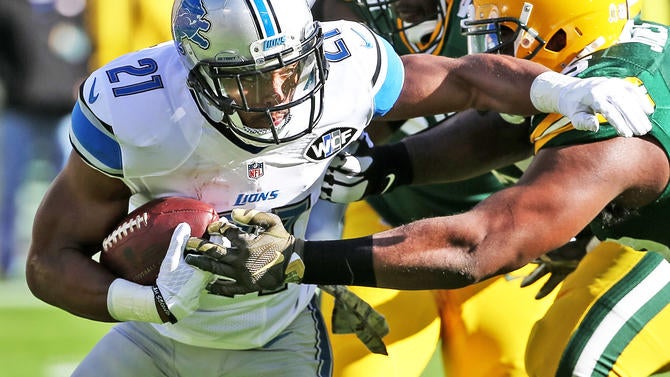
So, if the Lions are going to run the ball better, they might need to use 12 personnel more often or they'll need Ebron to improve as a run blocker. I suspect the Lions will find a way to use Fells in the running game instead of Ebron. According to PFF, "Fells played 82 percent of his snaps lined up inline" with the Cardinals. Sixty-nine percent of the time in that position he was a blocker. With Fells on the roster, expect the Lions to rely less on Ebron as a blocker and more on a pass catcher.
The signing of Fells and the selection of Roberts indicates the Lions intend to use two tight ends more frequently. That's probably a good thing for the running game.
But the Lions also lost left tackle Taylor Decker to an injury, which will force him to miss a decent chunk of the season. Filling in for Decker will either be Greg Robinson or Cyrus Kouandjio. Robinson was PFF's 76th-highest graded run-blocking tackle last year, which ranked second to last. Kouandjio ranked 44th, but he barely played last year (just 405 snaps).
To review: Lang and Wagner were helpful additions, but more so for the passing game. Fells should help the running game, but only if the Lions are committed to finding playing time for him. And Decker's injury is a brutal one. Based on those factors alone, it's tough to project that much more success for the Lions in the rushing department.
Ameer Abdullah matters
Ameer Abdullah's return is a reason to be excited about the Lions' chances to improve as a running team. Abdullah, the Lions' second-round pick in 2015, has the potential to be one of the most dynamic playmakers in the league when healthy. The problem is, he's rarely been healthy, appearing in just two games last year. In 18 career games, Abdullah averages 4.3 yards per carry. Last season, Abdullah got off to a blistering start, rushing for 101 yards on 18 attempts (5.6 YPC) before he was lost his year to a foot injury. On those 18 carries last season, he forced six missed tackles, according to PFF.
The sample size is admittedly tiny, so it's difficult to say that Abdullah is a lock to be a star, but he does ooze plenty of potential. There's no denying that.
Last year, the Lions used a committee of running backs to handle the ball -- Theo Riddick, Dwayne Washington, and Zach Zenner all racked up more than 85 carries. This year, expect the Lions to lean heavily on their best two backs: Abdullah and Riddick, with Zenner sprinkled in. Last year, PFF handed Riddick the third-highest receiving grade for a running back. So, look for Abdullah to get the bulk of the carries while Riddick handles most of the pass-catching duties.
"We're two talented backs and when we get the ball in our hands, we just want to do something with it," Riddick said last week, per MLive.com. "As long as we stay healthy, we should be in good shape."
But do they need to run more?
The short answer is no. The Lions didn't run the ball last year, but they did use their passing game as an extension of their running game. Of Stafford's 388 completions, 89 were caught by running backs (23 percent). This is the area Riddick thrives in. Last year, he caught 53 passes for 371 yards and five touchdowns. The year before, he caught 80 passes for 697 yards and three touchdowns.
Unlike a player like David Johnson, Riddick isn't stretching the field vertically as a pass catcher. He's catching short passes. Take a look at his passing map. This is basically the Lions' version of a running game:
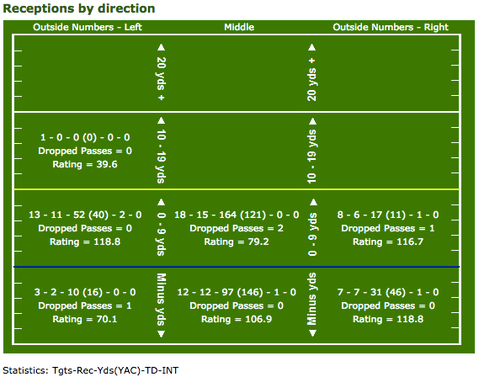
One reason why Jim Bob Cooter fixed Stafford? He turned him into a quick, short passer. Only two quarterback attempted more quick passes (within 2.5 seconds) than Stafford last season, per PFF. Many of those passes presumably went to Riddick. And that worked great for Stafford and the Lions. They shouldn't move away from it. Making Stafford throw shorter, quicker passes made him less prone to making mistakes. It resulted in the best year of his career. That -- getting the most out of their players -- should be the Loins' objective. Abdullah and Riddick are both capable pass catchers. It'll work again.
So in that sense, the running game isn't that important to the Lions. But here's why it is important: Another reason why they didn't run the ball well -- besides not having a great runner or dependable offensive line -- is that they didn't hold many leads. Really, that's the key to this question. The Lions would prefer if Stafford wasn't forced to set another record for the most fourth-quarter comebacks in a single season.
If the Lions hold more late leads, they'll run the ball more to run out the clock. It's not rocket science. So, to answer the question above, it really does matter how much the Lions run the ball. If they're running the ball more than last year, it might be due to their ability to take a lead into the fourth quarter. If they're not running the ball much, they're likely playing catch-up like they did for much of last season.
If the Lions are going to make leap from a solid team, which got lucky by posting an 8-5 record in one-score contests, to a good team, they'll need to hold more leads. They'll need to put away more teams. In the process, as a result of those leads, they'll pound the ball more.
The Lions might not need to run to get the lead. But they'll need to run to hold the lead. That's why the running game matters for Detroit this year.














